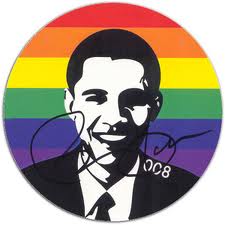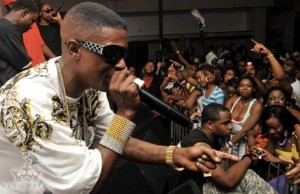Has Obama made hip-hop rethink masculinity? This is the question raised in a recent Washington Post blog article. Noting that well-known rappers like Jay Z, T.I., and Ice Cube have recently supported Obama’s endorsement of gay marriage, the author asks whether hip hop is ever-so-slowly moving toward a “post-homophobic”era. Mark Anthony Neal, well-known scholar of African American culture, thinks Obama has indeed helped signal a shift, while equally well-known rap aficionado, Bakari Kitwana, argues that “Hip-hop culture doesn’t take its social cues from Obama,” saying instead that it’s these artists’ growing maturity–and their lack of vulnerability to industry opinion now that they’re established–that is causing a shift.
I actually think both are right, though it’s probably beside the point to ask whether Obama is the cause of this shift. The point is that the shift is occurring. And it was an easy one to predict. As public attitudes toward gay marriage change dramatically, including among African Americans, it’s only logical that rappers’ publicly-expressed attitudes will too–especially if they’re business savvy. Rappers, like all entertainers, do take their social cues from the public.
It’s also an increasingly tough sell for rappers to talk about discrimination and then go on to deride homosexuality. Ice Cube gets it right when he points this out: “I’ve had people in my family, myself and a lot of my ancestors have been victims of discrimination. So I don’t want to discriminate on nobody.” And so whether Obama is responsible, in part, for this shift, is tough to determine. What’s way more important is that, while far from a “post-homophobic” era, rap is slowly moving out of the dark ages on this issue.
Now if we can just curb the bitches, money, and cocaine rhetoric, we might find ourselves on the cusp of a new era of rap lyrics. How many true rap fans wouldn’t love another golden age?



